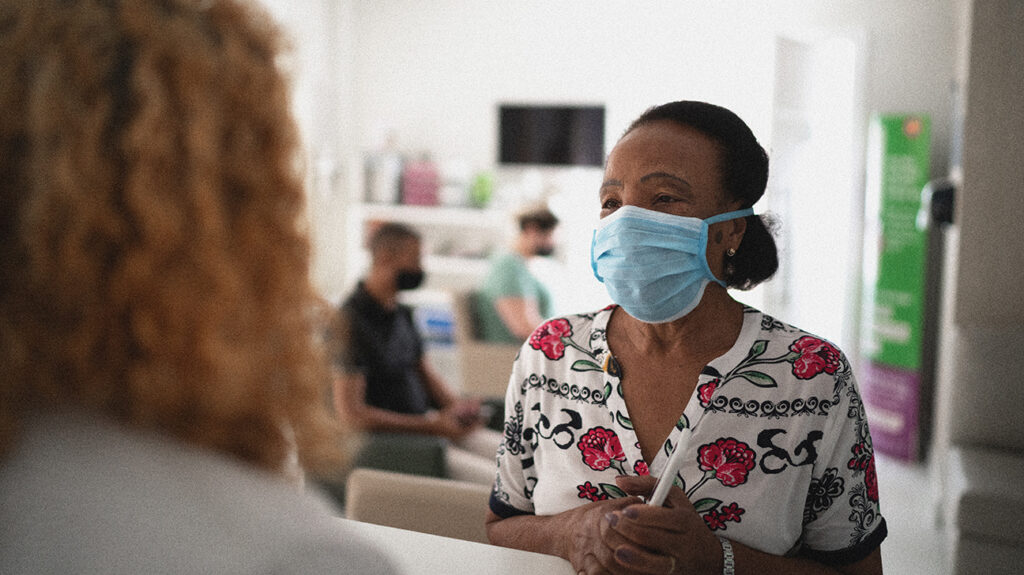A new study finds that six months after acquiring SARS-CoV-2, the blood of people who had mild, moderate, or asymptomatic COVID-19 still produced immune cells recognizing the virus.

To date, over 55 million individuals have acquired SARS-CoV-2, the virus that causes COVID-19, worldwide.
Documented cases of individuals reacquiring the infection, however, remain exceedingly rare. This is despite evidence that after developing a mild or asymptomatic infection, the amount of antibodies against the virus in the blood of most people decreases steeply.
The new research indicates that it could be uncommon for people to reacquire the infection because helper T cells, a type of immune cell, continue to protect most people for at least 6 months against the virus.
Helper T cells recruit other immune cells when they detect a virus to produce antibodies or destroy the infected cells.
Although our findings make us cautiously optimistic about the intensity and duration of immunity developed after SARS-CoV-2 infection, this is just one piece of the puzzle,” says study co-leader Prof. Paul Moss, a hematology specialist at the University of Birmingham in the United Kingdom.”
“Before we have a complete understanding of how immunity to COVID-19 works, there is still a lot for us to study,” he adds.
Importantly, however the study does not provide direct evidence that the researchers established T cells would prevent individuals from reacquiring the infection.
The research is available online at bioRxiv, and has not yet been peer-reviewed or published in a journal.
Monthly blood samples
100 individuals who had recently recovered from COVID-19 agreed to participate in the study between March and April 2020. Their symptoms were mild or moderate, or asymptomatic, and none of them needed hospital care.
The oldest participant was 65 years old and the youngest was 22 years old, while the female participant was 77.
Blood samples were given once a month, which enabled the researchers to monitor changes in the levels of antibodies targeted at three different viral proteins.
After 6 months, all the participants had helper T cells that reacted to the virus remaining in their blood. The development of IL-2, an immune signaling molecule that is especially essential for combating viral infections, was one of the main ways the cells reacted.
The T cell responses of those who had symptoms were 50 percent higher compared with those who had no symptoms.
Higher cellular immunity can provide better protection against the virus being reacquired in the future for people who have experienced symptoms, the authors add.
Nevertheless, they also write that:
“[I]t is also possible that the quality of the T cell response at the time of initial infection [in asymptomatic patients] was sufficient to provide clinical protection. The relative susceptibility of patients with initial asymptomatic disease to episodes of reinfection, either clinically silent or symptomatic, will therefore need to be assessed over time.”
During the preceding six months, the strength of T cell responses to the three separate viral proteins correlated with peak levels of the respective antibodies to these proteins.
This means that both of these branches of the immune system, antibody-producing cells and T cells, collaborated in the response says Prof. Paul Morgan, who was not involved in the study, director of the Systems Immunity Research Institute at Cardiff University in the UK.
Vaccine optimism
The study provides hope that long-lasting immunity can be provided by vaccines against SARS-CoV-2, which seek to replicate the immune response that would occur with anyone contracting the virus.
“This is all very good news and bodes well for the long term, both in terms of the production of vaccines and the likelihood of long-term reinfection safety, although it is important to emphasize that we do not yet know whether the individuals in this study are safe from reinfection,” says Eleanor Riley, Professor of Immunology and Infectious Disease at the University of Edinburgh, UK, w.
Its small size and the restricted number of older adults, males, and chronically ill people in the sample were among the study’s limitations.
“Nevertheless These findings increase confidence that contracting SARS-CoV2 infection can at least in this relatively young, mild or asymptomatic cohort, induce robust T cell immunity and that this immunity persists even when the levels of antibodies are decreasing,” says Prof. Morgan.
“The authors make a strong case for more broadly assessing the immunity of T cells and using this in vaccine response assessments when these become available,” he adds.






